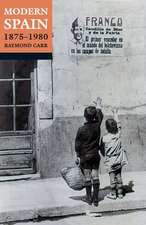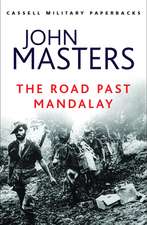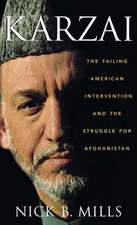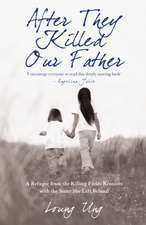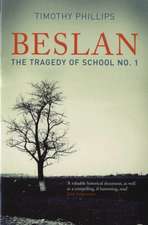Gypsies, Wars and Other Instances of the Wild: Civilization and its Discontents in a Serbian Town
Autor Mattijs van de Porten Limba Engleză Paperback – 31 mai 1998
What does civilization mean to the inhabitants of a Serbian town after yet another bloody war on the Balkan Peninsula? How was it possible that people who had been friends and neighbors for so long ended up killing each other? And how do they deal with this barbarity in the post-war period?
The figure of the gypsy, who often appears in Serbian popular culture, has always been invested with the mysterious power to unveil the mendacious undertones in the program of civilization. Wherever he appears - in jokes, songs, tales, literature, or movies - the civilized order is unmasked. This motif can be seen most dramatically in bars and taverns, where gypsy musicians lead their Serbian customers in veritable celebrations of unreason. "This is real," Serbs say about these gatherings where the canons of propriety and civilized behavior are overthrown with obvious relish. "This is life."
The author, who spent several months in Serbia investigating these wild meetings, relates the 'unreason' of the behaviour in these bars to the atrocities committed during the war which broke out during his stay. Highlighting how the program of civilization brings with it the need to construct an image of humankind more compatible with the lessons of history, Gypsies, Wars and Other Instances of the Wild may be read as a case-study of how war-infested societies cope with wartime traumas.
The figure of the gypsy, who often appears in Serbian popular culture, has always been invested with the mysterious power to unveil the mendacious undertones in the program of civilization. Wherever he appears - in jokes, songs, tales, literature, or movies - the civilized order is unmasked. This motif can be seen most dramatically in bars and taverns, where gypsy musicians lead their Serbian customers in veritable celebrations of unreason. "This is real," Serbs say about these gatherings where the canons of propriety and civilized behavior are overthrown with obvious relish. "This is life."
The author, who spent several months in Serbia investigating these wild meetings, relates the 'unreason' of the behaviour in these bars to the atrocities committed during the war which broke out during his stay. Highlighting how the program of civilization brings with it the need to construct an image of humankind more compatible with the lessons of history, Gypsies, Wars and Other Instances of the Wild may be read as a case-study of how war-infested societies cope with wartime traumas.
Preț: 53.41 lei
Nou
Puncte Express: 80
Preț estimativ în valută:
10.22€ • 10.61$ • 8.52£
10.22€ • 10.61$ • 8.52£
Carte tipărită la comandă
Livrare economică 28 martie-09 aprilie
Preluare comenzi: 021 569.72.76
Specificații
ISBN-13: 9789053563151
ISBN-10: 9053563156
Pagini: 350
Dimensiuni: 165 x 241 x 18 mm
Greutate: 0.45 kg
Ediția:1
Editura: Amsterdam University Press
Colecția Amsterdam University Press
Locul publicării:Netherlands
ISBN-10: 9053563156
Pagini: 350
Dimensiuni: 165 x 241 x 18 mm
Greutate: 0.45 kg
Ediția:1
Editura: Amsterdam University Press
Colecția Amsterdam University Press
Locul publicării:Netherlands
Notă biografică
Mattijs van de Port is a cultural anthropologist. He lives and works in Amsterdam, The Netherlands.
Cuprins
List of Illustrations
Acknowledgements
Introduction
Cultural refuges
Unusual advances
How is this possible?
War and festivity: celebrations of unreason
Reasearch in wartime
Chaos and the academic passion for tidying up
The world in stories
Part I, Reality as it is told
1. Fini Ljudi A Balkan Bourgeosie
And if it doesn't come naturally, just pretend...
City in the making, city folk in the making
Urban primitives
Who we are and who we no longer are
Folk dance
Ethnography
Trubo-folk music
Other stories about the same world
2. Borderland, Warzone
The return of the wild man
A Strict foreman from the West
Refugees, Grenzer, peasants and other wild men
Notions of Serbhood and romantic nationalism among the Habsburg Serbs
Main lines of development in the civilisation debate
Novi Sad: the reality as it is told
Part II, Beyond the world in stories
3. Lessons from the Refom School of War
On the sense and nonsense of stories
Towards an account of the damage war can cause to stories
The recurrent war
The large-scale war
The total war
The desecrative war
The shameless, importunate war
The cruel war
The unspeakable war
The silence of the victims...
...and the words of the propagandists and historians
Tito's lovely war
Glorious defeat
Truts and other lies
Part III, Imaginary worlds
4. On Mud and Gypsies, or On People and the World as They Simply Are
Analogy: the world at war and the world of the Gypsies
Snapshots from an imaginary Gypsy world
How we had to flee
How we lost everything time and again
How we were thrown under the ice
How we were victimised
How we had nothing
How we suffered
How we beat the cold
How we beat hunger
How no one can keep the people of teh Balkans down
The Gypsies as guardians of implicit social knowledge
Discuising and revealing: the mixture of the worlds of self and other in the Gypsy neighbourhood
Vision 1: the film director
Vision 2: the ethnographer
Vision 3: my discussion partners
Disguising and revealing: the distrubingly strange
Disguising and reavealing: the collective fantasies about eh cigansko carstvo
Violence
Sex
Waste
Anomie
One more time: fusion
Anti-structural tendencies in the fantasies about Gypsies
Nothing is what it seems
Everything is what it is and not another thing
Play frames
They thought up a world and they called it a living world
5. Kafana
Mimetic play
In the Gypsy's skin
Transitoriness
Wastefulness
Power and dependence
Destructiveness
Physicality
The unspeakable character of reality
Opting for the unreason of the Gypsy bar
Conclusions: The Embrace of Unreason
Reasons for the irrationality in Novi Sad
Beyond the stories
Final remarks
Notes
Bibliography
Index



